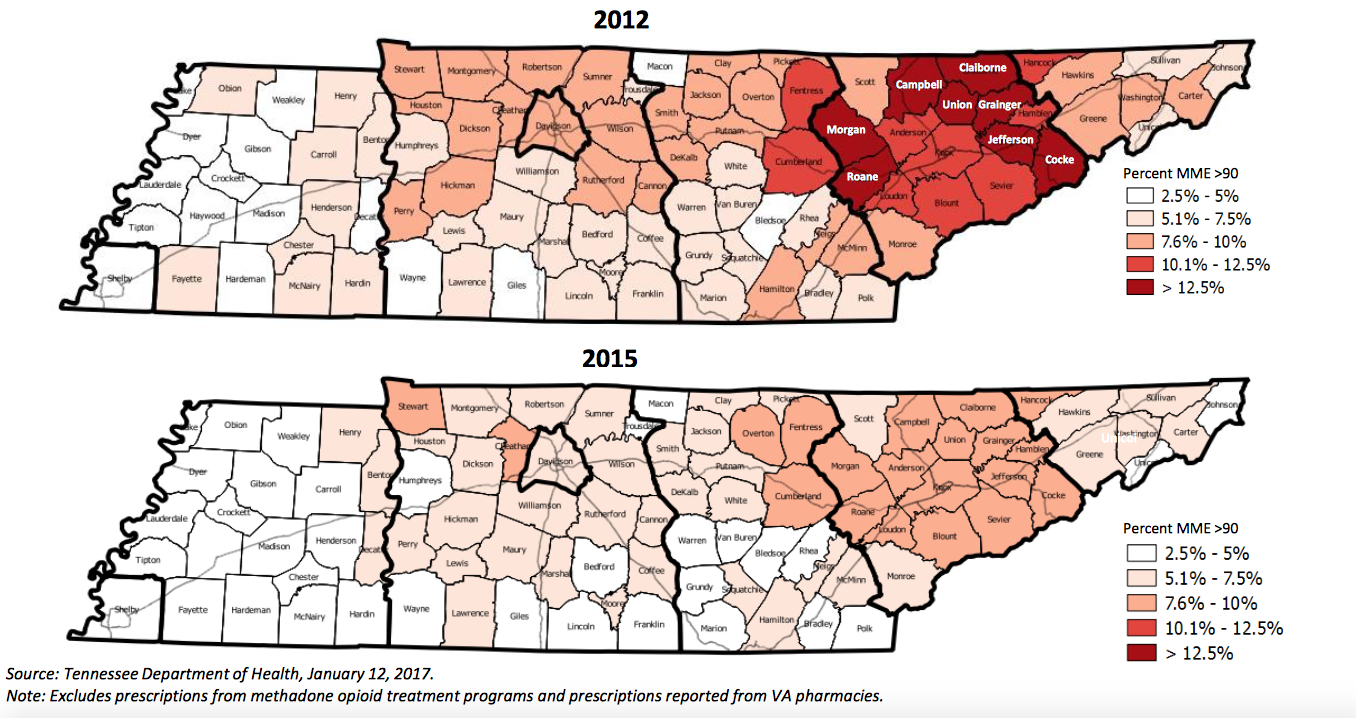 Justin Fox Burks
Justin Fox Burks
A Tennessee House committee wants more money for opioid addiction treatment, recovery schools in each Grand Division, 25 more Tennessee Bureau of Investigation (TBI) agents, and more to help combat the state’s growing opioid crisis.
Close to 2,000 Tennesseans died of opioid overdoses last year, well over the national average, according to state documents.
Last year, Tennessee had 9.7 deaths per capita associated with the use of natural opioids, like morphine and codeine, and synthetic opioids like oxycodone, hydrocodone. The national average of these kinds of drug deaths was 3.9 per capita last year.
In January, House Speaker Beth Harwell created the House Ad Hoc Task Force on Opioid Abuse to meet this summer, hear from experts and stakeholders, and devise strategies to lower opioid use here.
“Substance use disorder is a complex issue, and the challenge in Tennessee is immense,” said Rep. Curtis Johnson, the committee’s chairman and House Speaker Pro Tempore. “All three branches must work together to advance a comprehensive approach.”
Opioid use, crime, arrests, drug seizures, and overdoses are highest in East Tennessee, according to a new study by the Tennessee Department of Health. Those are all small, though existent, in West Tennessee.
 Tennessee Department of Health
Tennessee Department of Health
This graphic shows the amount of the population that uses high doses of opioids on a daily basis.
Opioid deaths are higher in rural areas. Heroin overdose deaths are highest in urban areas, according to the study.
The eight-member committee devised 24 recommendations to Harwell. The recommendation came under three broad categories of treatment, prevention, and policy.
Treatment
The top recommendation was to ask Gov. Bill Haslam for more money in next year’s budget for substance abuse services from non-profits, faith-based organizations, or local governments. The members want to increase drug screenings, detox programs, family interventions, and more.
The members would also like to pilot a program that would put recovery schools in each Grand Divisions of the state. These are secondary schools for students with substance abuse issues. Members said vacant state properties could house the schools.
Also, the committee recommended more access to recovery courts, and to drugs that can help stop an overdose in an emergency situation.
Prevention
“Addiction is a treatable disease, reduce the stigma.” That’s one of the top recommendations from the committee for preventing opioid abuse.
That’s part of a multi-faceted public awareness campaign to help educate the public on the problem. Committee members would also set up a hotline and web access for drug information. The State Board of Education would write lesson plans about opioid abuse and promoting healthy lifestyles.
New legislation could give patients the option to only partially fill prescriptions for some drugs and limit the number of days such drugs could be prescribed to 10.
Policy
A new Tennessee Commission to Combat Drug Abuse would be established and meet quarterly to review programs and trends and to make further recommendations to lawmakers.
The committee would also add 25 TBI agents “to combat the opioid epidemic.” Funds would be increased to enhance penalties and enforcement efforts on opioid offenses.
Pain clinics would not treat walk-in patients; they would have to have a referral from a physician.
Also, grants would be given to to local governments and nonprofits to start opioid treatment and prevention initiatives across the state.